Politics
/ArcaMax

Commentary: Will Democrats find an anti-Trump to galvanize the left?
With President Donald Trump continuing to bulldoze through American politics, Democrats are forced to confront a fundamental question: Do voters even want what they’ve been offering?
The meteoric rise of Zohran Mamdani, a fiery young Democratic Socialist who recently claimed a shocking New York mayoral primary win, points to a grim answer.
...Read more
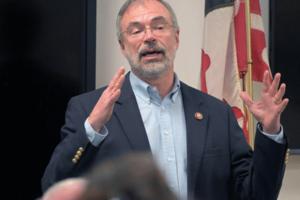
Crypto, Defense bills back on track after Oval Office talk
WASHINGTON — Three pieces of cryptocurrency legislation and the fiscal 2026 Defense appropriations bill appeared ready for House floor action on Wednesday after stalling out for much of the day on Tuesday.
After a group of conservative Republican lawmakers sank the rule for floor debate over objections to how the crypto bills were being sent ...Read more

Trump team's handling of Epstein files deepens Republican divide
WASHINGTON — The rift within the Republican Party over the release of documents related to disgraced financier Jeffrey Epstein continued to widen, with top congressional allies of President Donald Trump — including House Speaker Mike Johnson — calling for his administration to exercise greater transparency.
The growing controversy has ...Read more
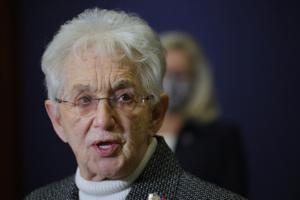
Rep. Virginia Foxx led vote on Epstein files. Here are things to know about her
WASHINGTON — Rep. Virginia Foxx sat at the front Monday night and smiled slowly before her face stiffened.
She pinched her thumb against her pointer and middle fingers and rubbed them together.
She started to speak, just for a moment, but instead clenched her jaw.
Then she narrowed her gaze on Rep. Teresa Leger Fernández, a Democrat from ...Read more

Landlord seeks to evict Florida Rep. Cory Mills from DC penthouse
Central Florida U.S. Rep. Cory Mills could face eviction from a luxury Washington, D.C., penthouse after his landlord sued and accused him of failing to pay tens of thousands of dollars in rent.
The Republican congressman owes about $85,000 in missed rental payments from March until this month, Bozzuto Management Co. alleged in a lawsuit filed ...Read more

Trump touts billions for Pennsylvania energy, AI sectors while jabbing at Biden
President Donald Trump returned to Pennsylvania on Tuesday to tout massive private sector investments in artificial intelligence and energy in the key battleground state, but he also found time to weave into unrelated topics, including taking potshots at his predecessor.
Trump’s visit took him to Carnegie Mellon University in Pittsburgh for ...Read more

GOP spending bills run into intraparty friction in House
WASHINGTON — House Republican appropriators are running into headwinds in their attempt to move fiscal 2026 spending bills before the August break, struggling both with a tight schedule and intraparty differences on funding levels that threaten House passage.
House Appropriations Chairman Tom Cole, R-Okla., conceded Tuesday that his panel won...Read more

Trump accuses Adam Schiff of mortgage fraud, which the senator calls false 'political retaliation'
President Trump on Tuesday accused Sen. Adam Schiff, D-Calif., of committing mortgage fraud by intentionally misleading lenders about his primary residence being in the suburbs of Washington, D.C., rather than California, in order to “get a cheaper mortgage and rip off America.”
Schiff, who led a House impeachment of Trump during the ...Read more

Georgia lawmakers consider more election changes ahead of 2026
ATLANTA — The 2026 elections may seem like a long way away, but that’s not how Georgia state lawmakers see it.
Plans — from new voting machines to even more new voting laws — are already underway as a special legislative committee dominated by Republican lawmakers met for the first time Tuesday.
Members of the House Study Committee on ...Read more
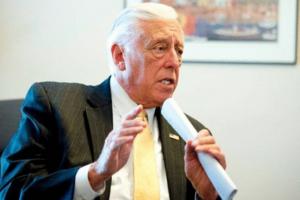
Rep. Steny Hoyer raises $232,000 as he mulls reelection bid in Maryland
BALTIMORE — Maryland’s oldest lawmaker hasn’t announced whether he’ll run for reelection. But if he doesn’t, it won’t be for lack of funding.
Rep. Steny Hoyer, a Prince George’s County Democrat, raised roughly $232,000 during the second fundraising quarter, according to Federal Election Commission (FEC) filings. After expenses, ...Read more
Trump, Sen. McCormick, announce billions in AI and energy investments in Pa.: 'The nation's future depends on us'
PITTSBURGH — President Donald J. Trump joined some of the world’s leading technology and energy leaders at Carnegie Melon University on Tuesday, announcing what he said would amount to billions in planned projects for Pennsylvania.
Sen. Dave McCormick, R-Pa., who convened the summit, put the total investment at north of $90 billion spanning...Read more

Chicago Board of Election workers should not be barred from unionizing, judge finds
The Chicago Board of Election Commissioners had previously argued that the state’s election code barred its employees from forming a union. But the law shouldn’t be read that way, administrative law Judge Anna Hamburg-Gal found in an order Monday that paves the way for official recognition of the union.
City elections workers, including ...Read more
Former Army officer to challenge for Colorado Springs congressional district
DENVER — Jessica Killin, a former U.S. Army captain and chief of staff to former second gentleman Doug Emhoff, will look to flip the 5th Congressional District in 2026, she announced Tuesday.
Killin, a Democrat, will take on freshman Republican U.S. Rep. Jeff Crank for the El Paso County district. The seat has long been a Republican ...Read more
Trump's Russia tariff threat risks harming ties with Modi, Xi
U.S. President Donald Trump’s latest threat of 100% tariffs on Russia would risk complicating relations with two nations crucial to his economic and strategic goals: China and India.
Trump on Monday threatened tariffs of about 100% on Russia unless it reached a peace deal with Ukraine in the next 50 days, saying the levies would come in the ...Read more
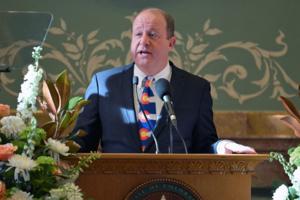
Colo. Gov. Jared Polis joins other Democrats in opposing planned U.S. tariffs
With President Donald Trump threatening several U.S. trading partners with substantial tariffs the first of August, Gov. Jared Polis and other Democratic governors said Monday that they are taking steps to oppose policies they consider harmful to their states’ businesses.
Polis issued an executive order directing the Colorado Office of ...Read more
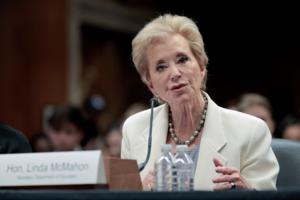
Supreme Court OKs Trump's plan to dismantle the Education Department
The Supreme Court on Monday gave President Trump the authority to dismantle the Education Department and to fire about half of its staff.
In a 6-3 decision, the court's conservatives set aside a Boston judge's order and cleared the way for Education Secretary Linda McMahon to carry out her plans to shut down much of her department.
The court ...Read more

Texas redrawing congressional district after feds say maps unconstitutional
Gov. Greg Abbott’s special session agenda includes the redrawing of congressional districts mid-decade. This comes after the U.S. Department of Justice sent a letter to the governor and attorney general saying three Houston districts and one Fort Worth district are “unconstitutional ‘coalition districts’” and are racially drawn.
A ...Read more
Trump assassination attempt, political violence condemned in resolution by Kelly, lawmakers
WASHINGTON — U.S. Rep. Mike Kelly and more than three dozen lawmakers have co-sponsored a resolution commemorating the anniversary of the attempted assassination of President Donald Trump in Butler and condemning the rise of political violence across the country.
Kelly, R-Butler, who co-chaired a bipartisan House task force that investigated ...Read more

Gov. Josh Shapiro, DNC chair Ken Martin say Sharif Street should step down as state party leader while running for Congress
Gov. Josh Shapiro and Democratic National Committee Chair Ken Martin said this week they think State Sen. Sharif Street should consider stepping down as Pennsylvania’s Democratic Party chair as he runs for U.S. Congress.
The comments from the two top Democratic heavyweights come as Street this month announced his campaign for the Third ...Read more

Iowa Rep. Zach Nunn decides on reelection to swing seat after talk with Trump
After mulling a run for governor of Iowa, Republican Rep. Zach Nunn has decided to seek reelection to his Des Moines-centered swing seat, a development first announced by President Donald Trump.
“Just spoke to Great Combat Veteran Zach Nunn, and he is committed to the mission of, HOLDING THE MAJORITY,’’ Trump said on his Truth Social ...Read more
Popular Stories
- Texas redrawing congressional district after feds say maps unconstitutional
- Rep. Virginia Foxx led vote on Epstein files. Here are things to know about her
- Rep. Steny Hoyer raises $232,000 as he mulls reelection bid in Maryland
- Chicago Board of Election workers should not be barred from unionizing, judge finds
- Trump, Sen. McCormick, announce billions in AI and energy investments in Pa.: 'The nation's future depends on us'























































